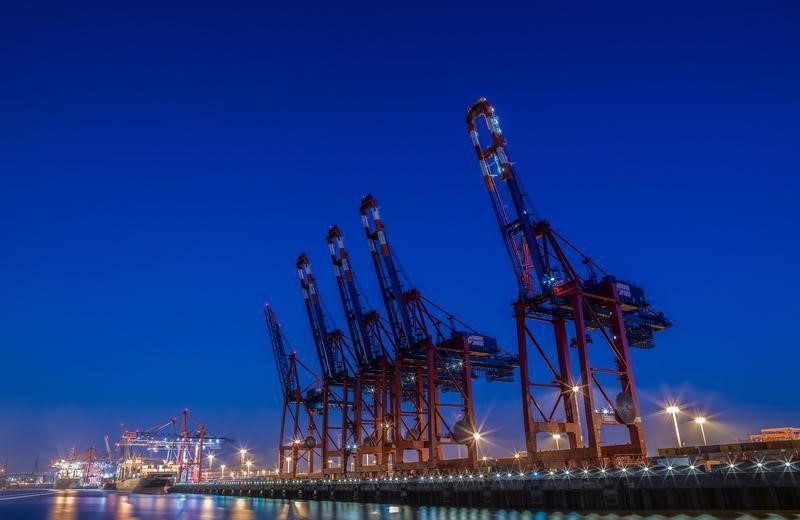By Paul Carrel
BERLIN (Reuters) - German exports and industrial output both fell in June, interrupting a solid recovery in Europe's largest economy that is still set to carry through into the third quarter thanks to a bumper rise in orders.
The 1.4 percent drop in output countered expectations for a small rise and prompted economists to review their assessment of the second quarter, though they remain positive about Germany's economic outlook after the rise in industrial orders.
The Economy Ministry said on Friday the soft performance of industry in the spring was mainly due to weakness in construction, which saw a dip after a strong first quarter.
"The conditions for the sector remain good," the ministry said in a statement.
UniCredit economist Andreas Rees said that after the output figure he had trimmed his growth forecast for the April-June period to 0.4 percent on the quarter from 0.5 percent. But he remained positive about the outlook given the orders influx.
Figures released on Thursday showed industrial orders recorded their biggest gain since early 2011 in the April-June period thanks mainly to strong foreign demand and despite a slowdown in China and uncertainty caused by the Greek debt crisis.
"The strong increase in (foreign) new orders suggests a rebound in manufacturing activity in the third quarter," Rees said. "In all probability, already the July figure should take off."
German economic growth weakened to 0.3 percent at the start of this year, and the finance ministry said last month that the economy would probably expand by around the same amount between April and June, with domestic demand propelling growth while foreign trade picks up.
Second-quarter gross domestic product (GDP) data is due next Friday. The mid-range forecast in a Reuters poll of 19 economists is for growth of 0.5 percent on the quarter.
RECORD TRADE SURPLUS
German companies are growing in confidence.
Business confidence improved in July after two monthly drops as an agreement between Greece and its creditors for talks on a third bailout lifted the mood at firms.
Friday's figures showed exports fell in June by 1.0 percent on the month, while imports dropped by 0.5 percent. Economists polled by Reuters had expected exports to fall by 0.5 percent and imports to rise 0.5 percent.
However, the larger net balance between exports and imports meant that the trade surplus widened to a record 24.0 billion euros (16.90 billion pounds).
In a positive sign for the economy, a survey published this week showed manufacturing activity rose slightly in July as new contracts piled in.
Some industrial companies have made upbeat announcements. Siemens (DE:SIEG), for example, has performed better than expected despite weakness in China as the recovery in Europe helped boost some sales.
But truck maker MAN SE (DE:MANG) cut its profit and sales expectations for this year because of a plunge in Brazilian demand.
